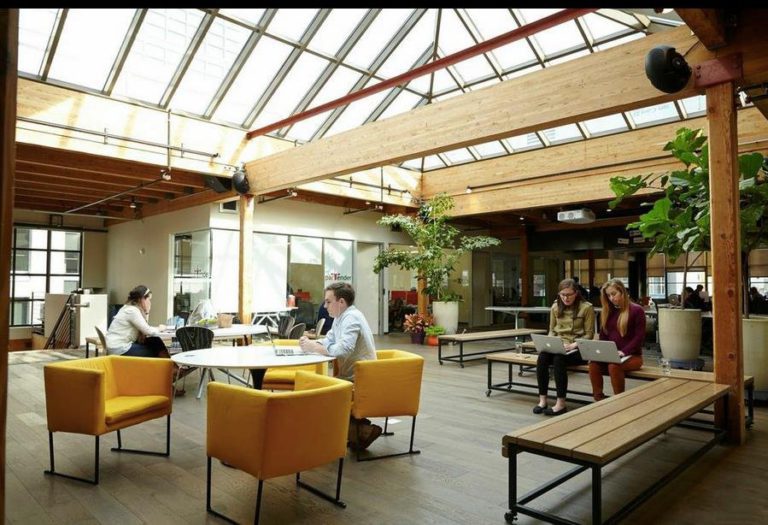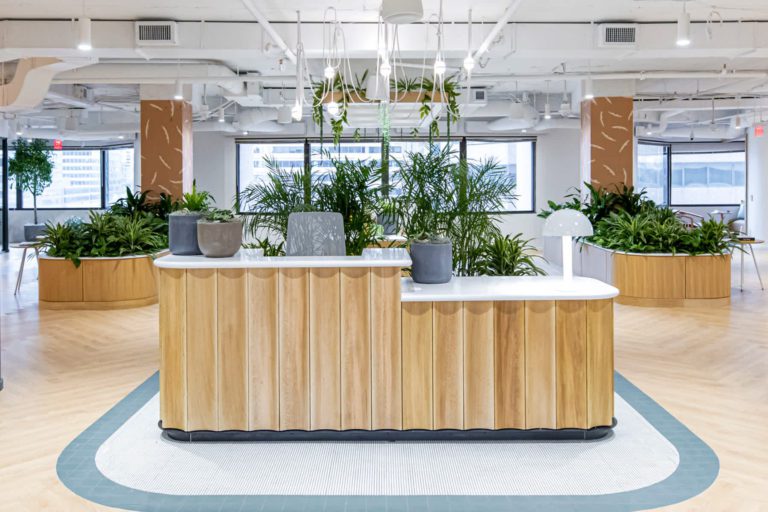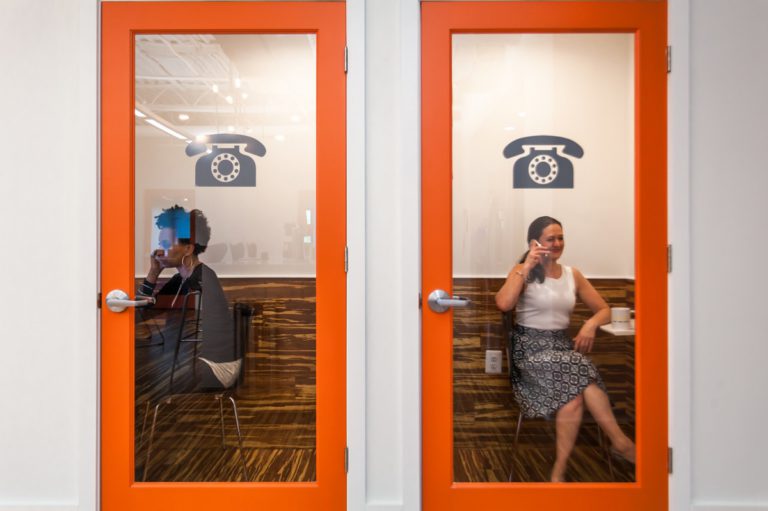
The number of professionals working outside of the traditional office environment has increased. Working from home is the most prevalent option. While there are numerous advantages to working from home, some people find it to be an isolating and ineffective way of working. As a result, a growing number of freelancers are turning to serviced office spaces, which are described as membership-based workspaces where people from various businesses and industries collaborate in a shared, communal setting.
In 2019, each coworking space in the world had an average of 185 members. This continually increasing statistic indicates that serviced office spaces are expanding in both number and size. With a roughly 500 percent increase in size from 2012 to 2019, we can only expect serviced office spaces to continue to expand and attract more workers in the future.
Shared Office Industry in the US

Co-working spaces were the fastest-growing type of office space in commercial real estate prior to the pandemic, according to CNBC. While they presently account for less than 5% of the market, they are predicted to grow by 30% in 2030.
The United States has the most coworking spaces (3,762) in the world in 2021, followed by India (2,197) and the United Kingdom (1,044). By 2022, 13% of companies outside the United States will be employing shared workplaces.

The United States boasts about 80 million square feet of flexible workspace, making it the world leader in serviced office space. According to coworking space statistics, the US leads the world in this area, ahead of the United Kingdom’s 60 million square feet. New York, notably Manhattan, is home to a significant portion of the country’s industrial serviced office space. (Find coworking spaces throughout the US here.)
According to studies, by 2022, 6% of all American businesses would be conducted in shared areas. While 6% may not seem like much, considering that serviced office spaces didn’t exist in the United States until 15 years ago, it’s astonishing how much of the market they’ve taken out. It’s even more significant outside of the United States, where 13% of non-American businesses are predicted to be conducted in shared areas by 2022.
This goal is mainly driven by the rapidly changing work culture in the US and around the world. According to a Prudential survey, almost 70% of American workers now prefer a hybrid workplace model that allows them to work outside of the office from time to time.
Also, one-third of employees said they would not want to work for a company that requires them to go back to the physical office full-time.
Who Uses Serviced Office Spaces in the US?
There are a variety of folks who would benefit from serviced office spaces instead of working from home. These groups include:

1. Remote Workers
Remote workers are one category of people who can benefit from using a serviced office space. Many remote employees prefer to work from home or from a nearby coffee shop since it gives them more flexibility and saves them money. Businesses hire remote workers because they believe that giving employees more freedom will boost production. Many remote professionals can function effectively from the comfort of their home office, but others suffer from a loss of productivity due to a lack of distractions or a sense of isolation.
Serviced office spaces are a fantastic alternative for this type of remote worker since they provide a desirable amount of structure without interfering with the independence of the remote worker. Remote employees who use serviced office spaces, like those who work from home, can strike a balance between their demand for flexibility and their need for structure.
2. People Who Are Traveling
Traveling professionals are another category of people who can benefit from using a serviced office space. These workspaces are located in large, metropolitan locations, which are the most popular travel destinations for professionals. This is one of the reasons they benefit. Another advantage of serviced office spaces for traveling professionals is that they provide state-of-the-art technology as well as any professional services they may require. Most serviced office spaces, for example, have secure lightning-fast internet, full-color printers, and in-house IT support. Most hotels and internet cafés do not provide access to higher-quality professional amenities, so this is a huge upgrade.

3. Freelancers
Freelancers continue to be the world’s largest serviced office demographic.
According to Deskmag’s analysis, freelancers still make up roughly 41% of the workforce at the average coworking hub. serviced office space occupancy statistics, on the other hand, suggest that corporate workers are just behind them, at 36%. This shows that larger businesses are taking advantage of shared workspaces as well.
Freelancers typically lack structure because they work for a variety of companies or clients, sometimes even at the same time. Freelancers benefit from serviced office spaces because they have access to meeting rooms, technology, a professional address, and a social environment conducive to networking. Serviced office spaces are one of the finest methods for freelancers to deal with the lack of consistency that comes with the kind of independence they are used to.
4. Students
Another group that can profit from the use of serviced office spaces is students. The collaborative, social environment benefits students almost more than any other group. These places also give students a wonderful opportunity to network with experts from a variety of fields. They will not only benefit from the mentorship of other professionals, but they will also build connections that will help them begin their careers after graduation.
5. Enterprise Employees

People who operate in traditional office settings are the final category that can benefit from using serviced office spaces. It may seem odd, but there are various benefits to working in a coworking space on occasion rather than in a regular office. Serviced office environments lack the direct competitiveness and internal politics of traditional office settings, allowing workers to shed any unproductive work personas. serviced office spaces’ diversity of vocations and persons might stimulate innovative new ideas that would not occur to professionals in a traditional office setting.
Summary
Serviced offices are an effective workplace solution for small and medium businesses (SMEs) and startups due to the flexibility they offer. Serviced offices can provide a flexible workspace that adapts swiftly to staffing changes. Serviced offices are also perfect for established businesses that have just started operations in a new city or professional firms that live on local cooperation with other businesses in the same industry.

Enterprise software development experience. More recently in positions including CTO, Lead Developer and Head of Product in Australia. Deep expertise in property and legal technology in Australia with a specialty in lead generation and tech scalability across Asia-Pacific.